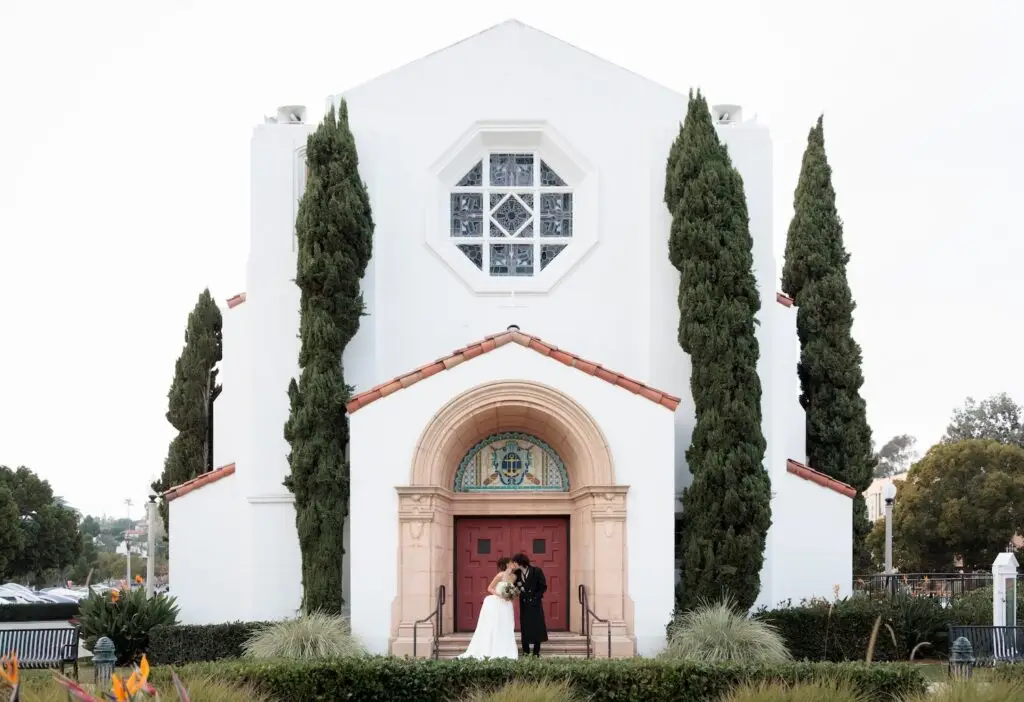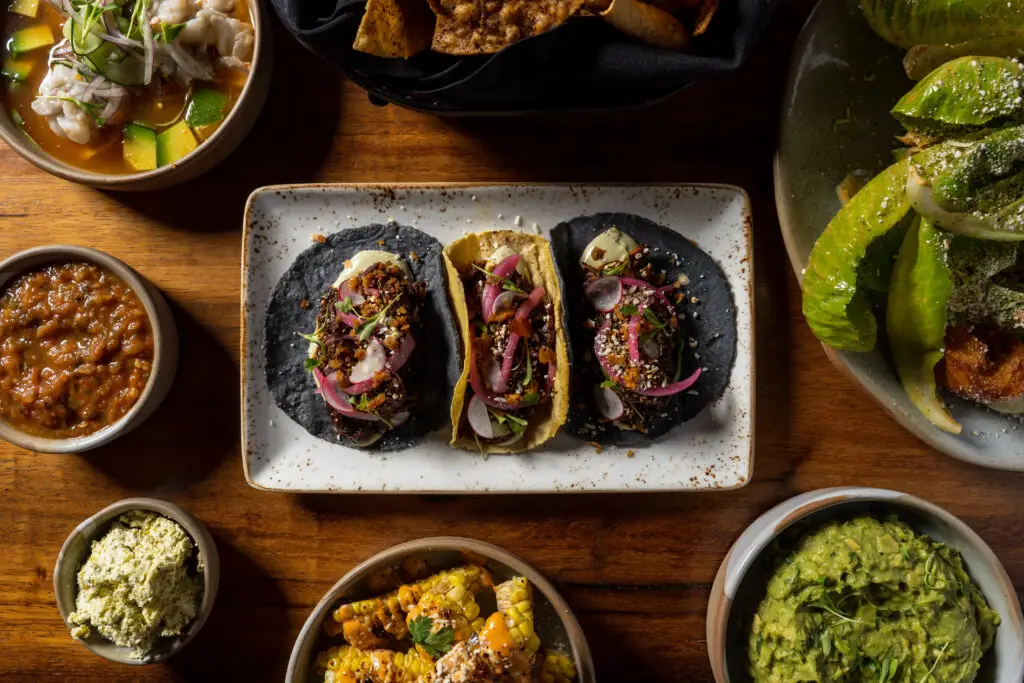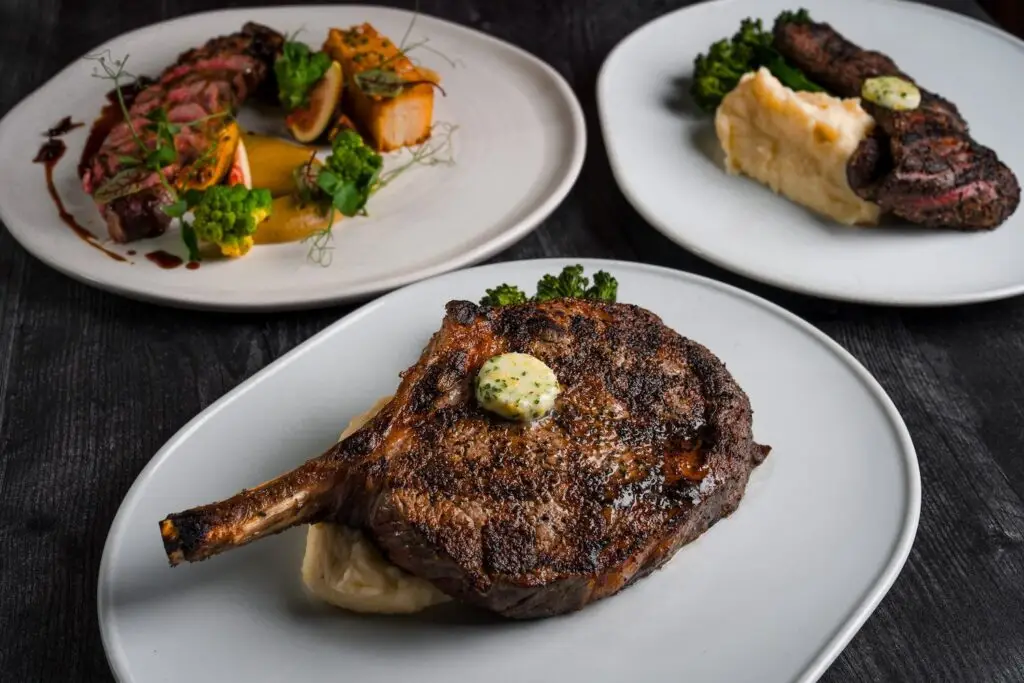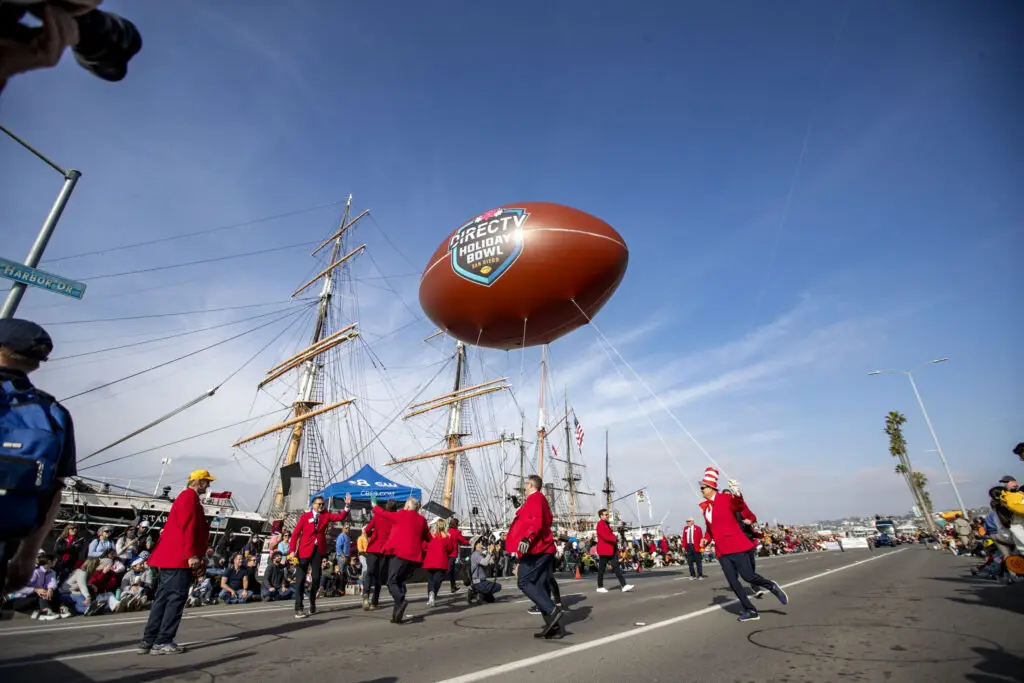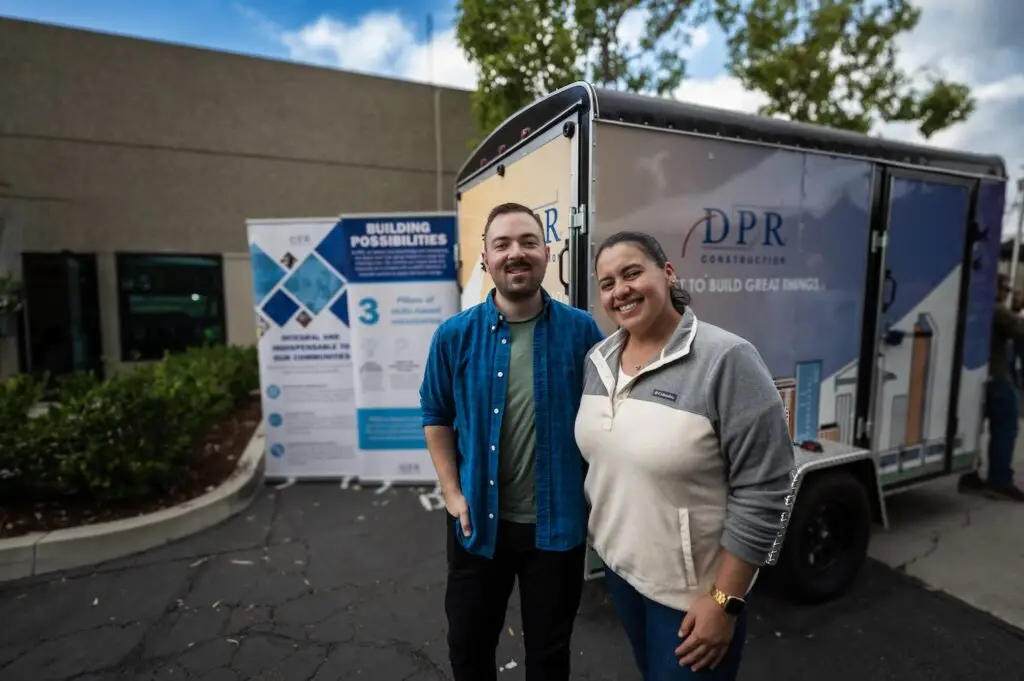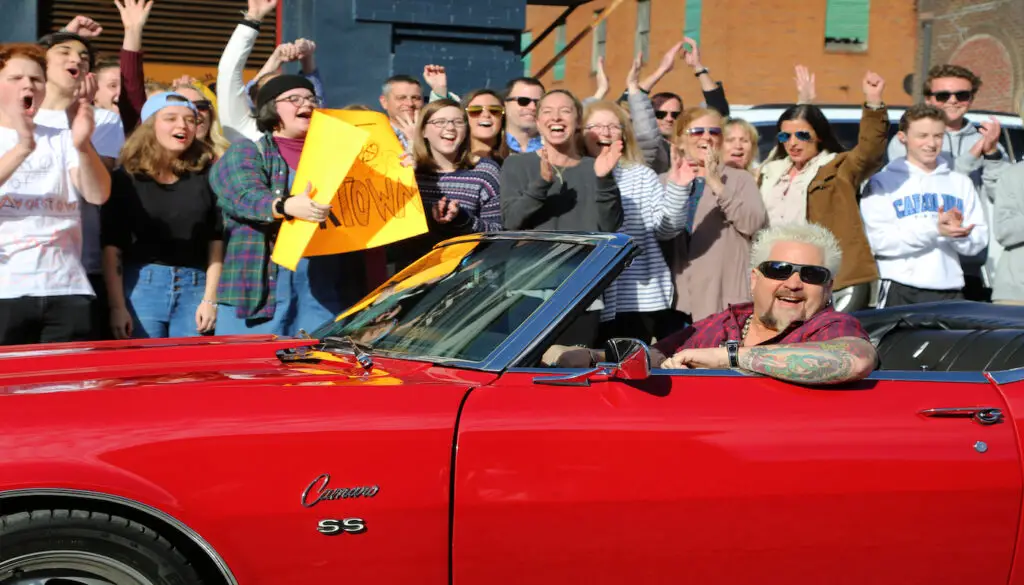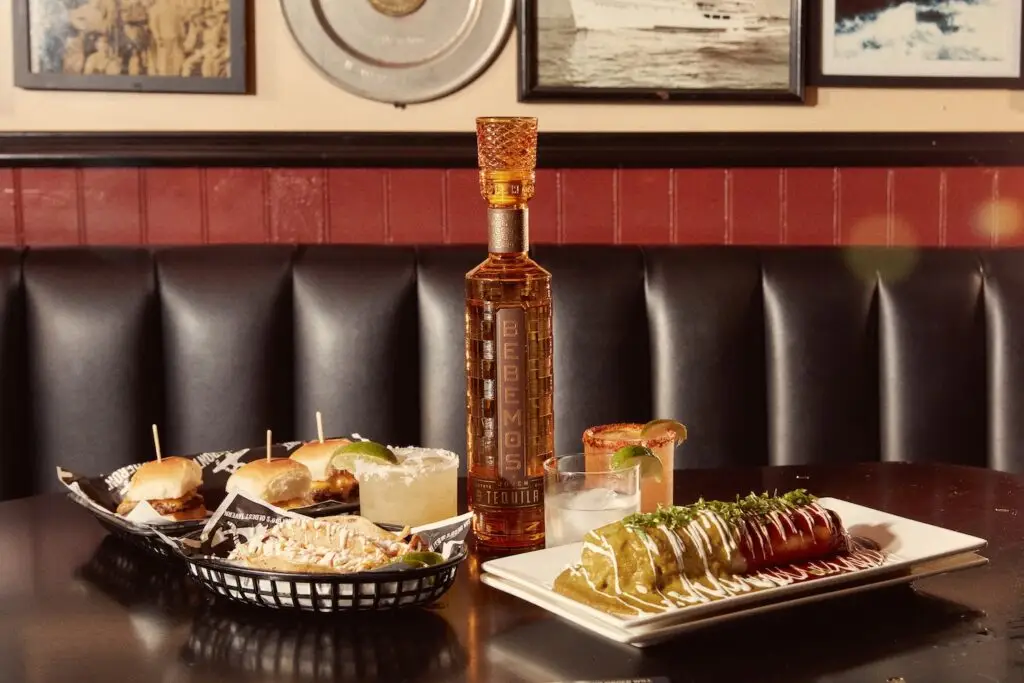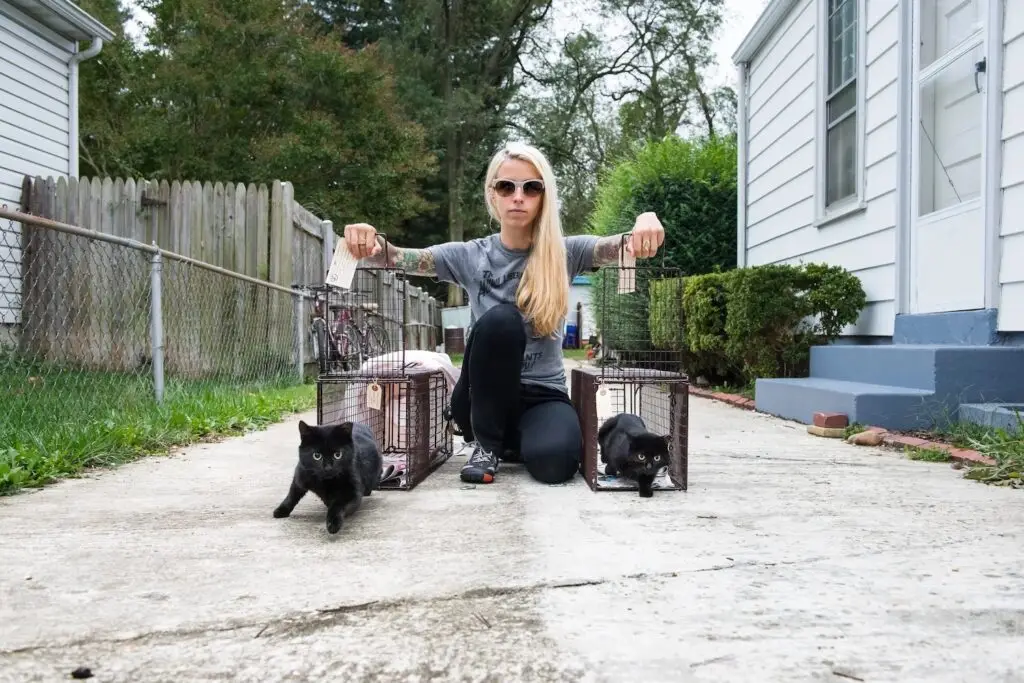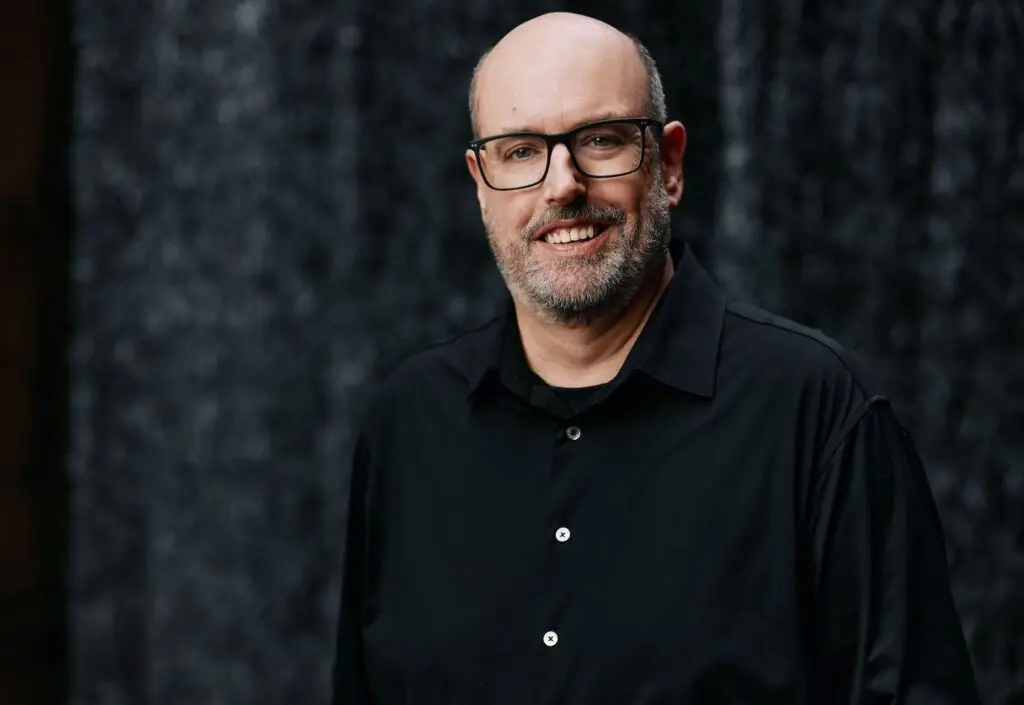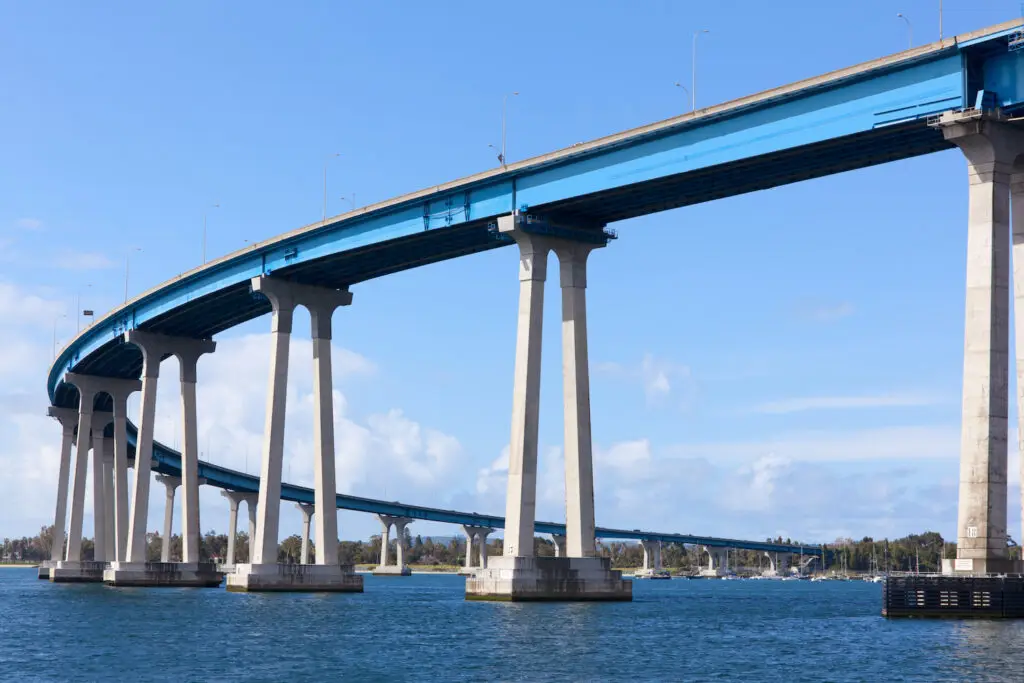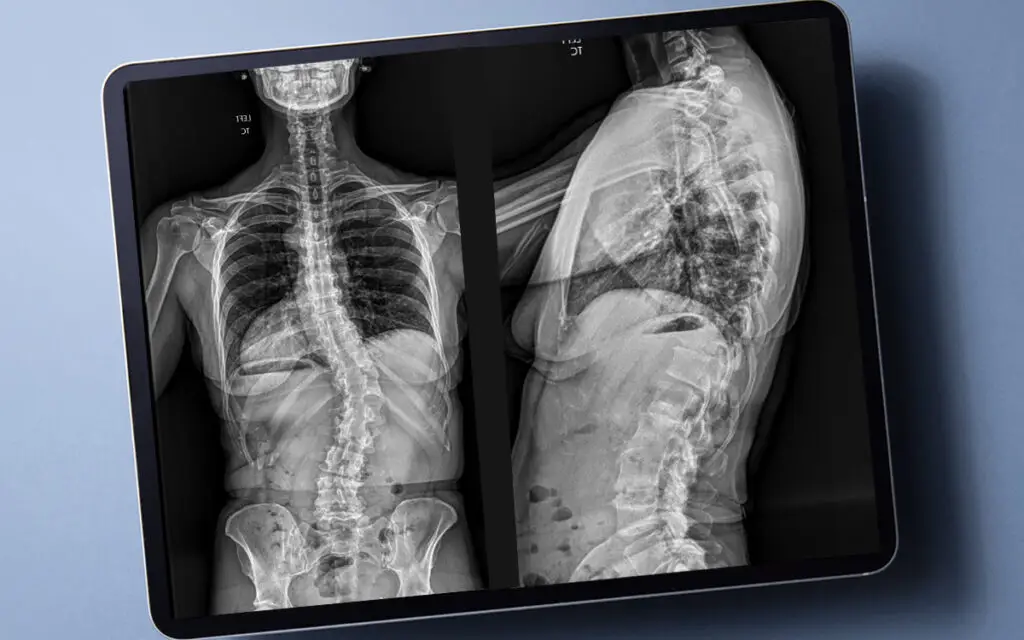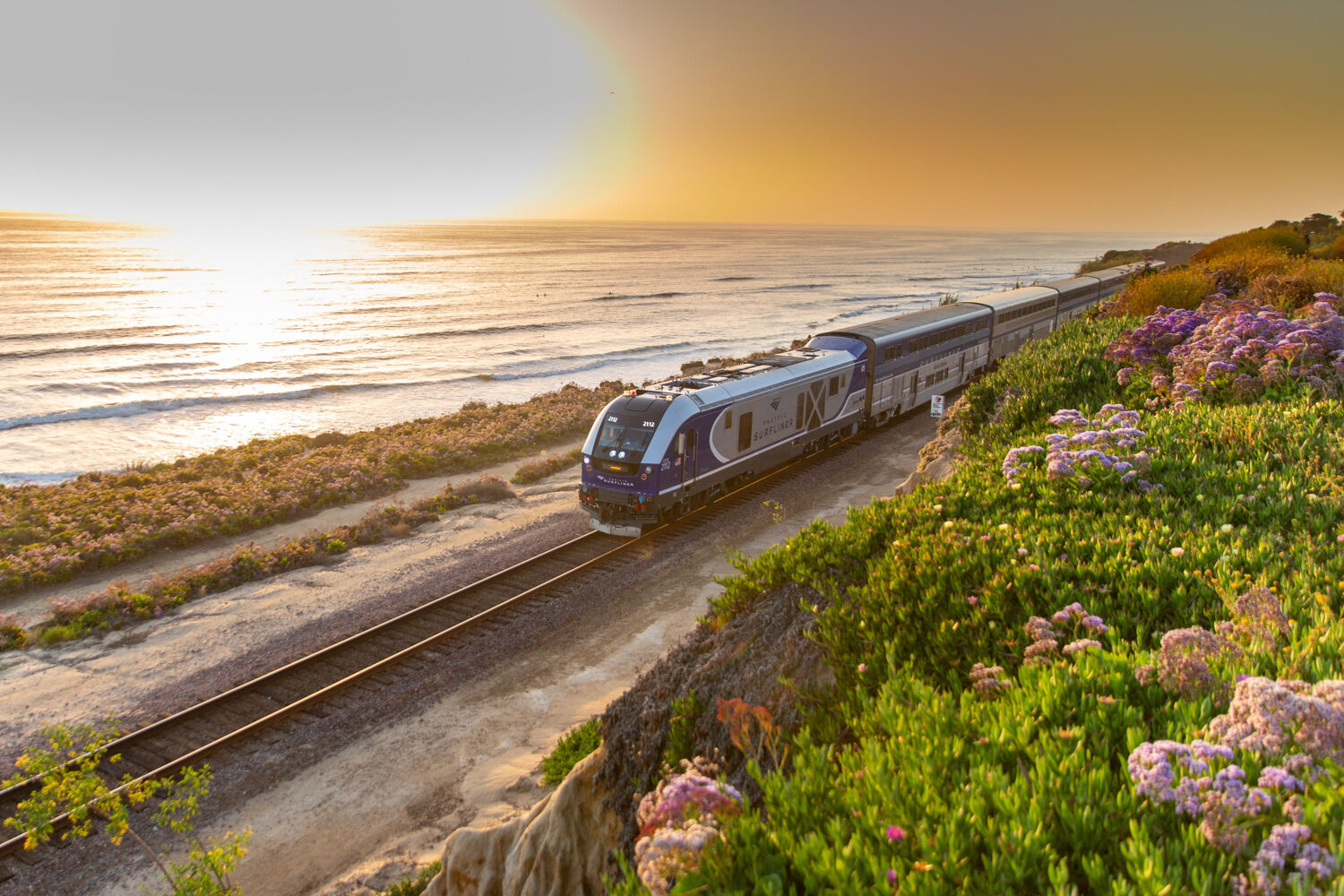Flying makes me feel powerless. So in 2019, I stopped and started taking trains—mainly Amtrak. On these trains, I carry a sense of rootlessness that’s invaded me since I became estranged from my mother nine years ago. And on trains, I’ve learned I’m not alone. This waywardness runs through many frequent train travelers.
Traveling often and for long periods of time, it sometimes feels like I have no home. Often when visiting a new place, I think, ‘Maybe, if I relocated, this could be home.’ I had left Chicago, the place I moved to call home, where my partner and friends were, feeling antsy.
Finding myself in California—as wonderers and wanderers often do—riding the rails, I was once again fantasizing about starting over. I decided to attempt traveling through the state solely by Amtrak and other public transit, even though I was unsure how feasible that would be.
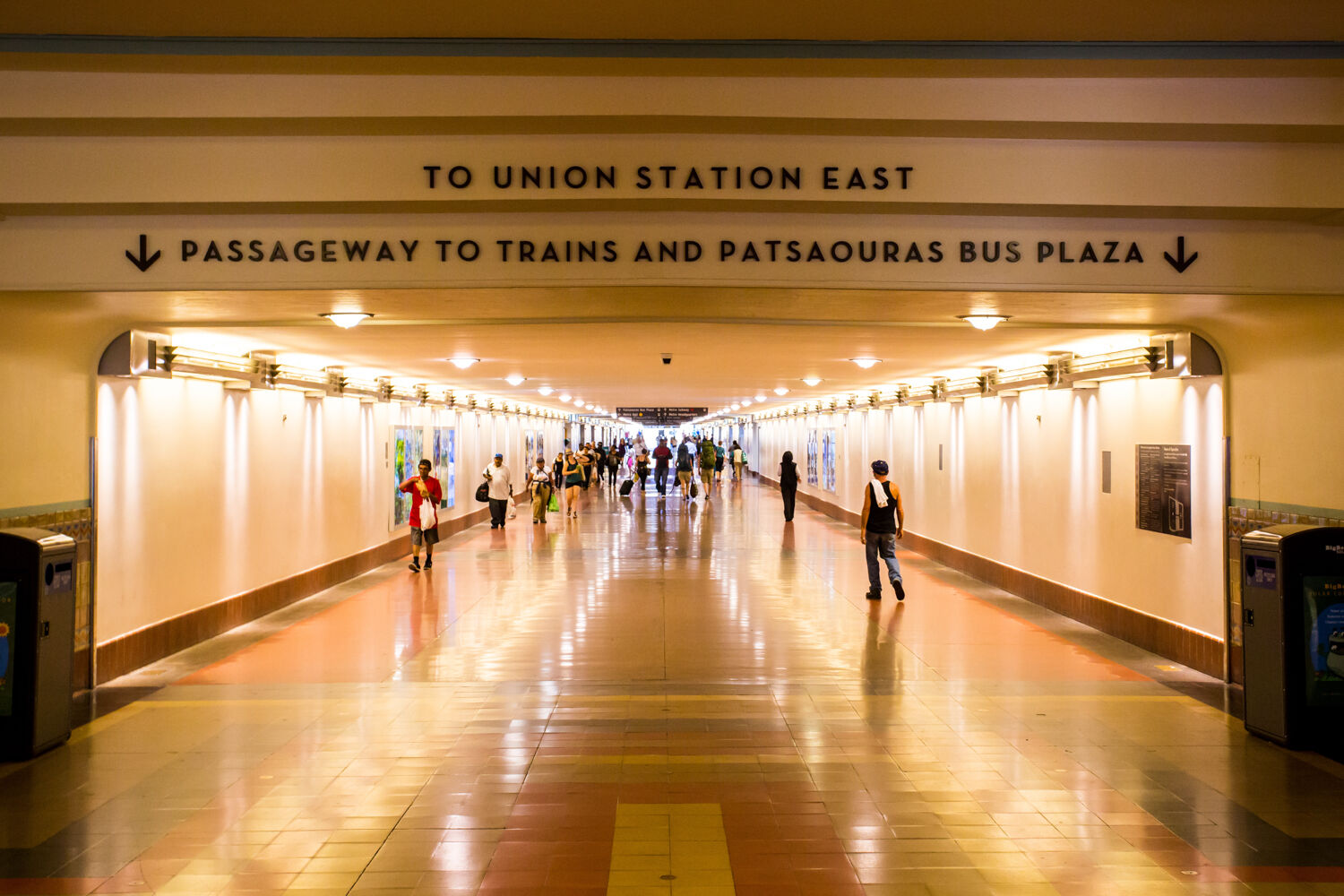
LA’s Union Station, alive with train people who “often bare the grimy intimacies of their lives to fellow passengers.”
After 42 hours on the Southwest Chief from Chicago to Los Angeles, I stepped off the train and into an aggressive heatwave. Despite it being 100 degrees, my friend and I went to a dive bar in the small beach town of Playa del Rey, where I met a man who shared with me that he’d lost his own mother years prior.
He’d been grieving—and trying to capture a sense of home—ever since. My people. My mother was alive, but I related to him. These questions of family, home, and grief set the tone for my entire journey.
There is perhaps no mode of American transportation more fit to understand the interior lives of others than train travel, where the opportunities for eavesdropping and meaningful conversation are near endless. In LA’s Union Station, I overheard a woman with sextuplets and a set of twins quoting Bible verses and loudly telling her husband all the reasons she’d decided to file for divorce.
A man told me he was an expert on alternative modes of transportation, having once taken his bike from San Francisco to Denver at age 13. Train people often bare the grimy intimacies of their lives to fellow passengers. Other times, they’re audacious, glamorous liars. Being lied to like that is its own form of intimacy.
I headed south to San Diego on the Pacific Surfliner, the scent of saltwater permeating the train alongside ocean cliffs. The Surfliner is Amtrak’s most beautiful and elegant route, with complimentary snacks and rosé in business class. But its breathtaking proximity to the ocean is also its downfall. This is where I hit my first snag of the journey. A section of track recently fell into the ocean due to erosion, obliterating service and stranding countless train folk. Another win for car culture.
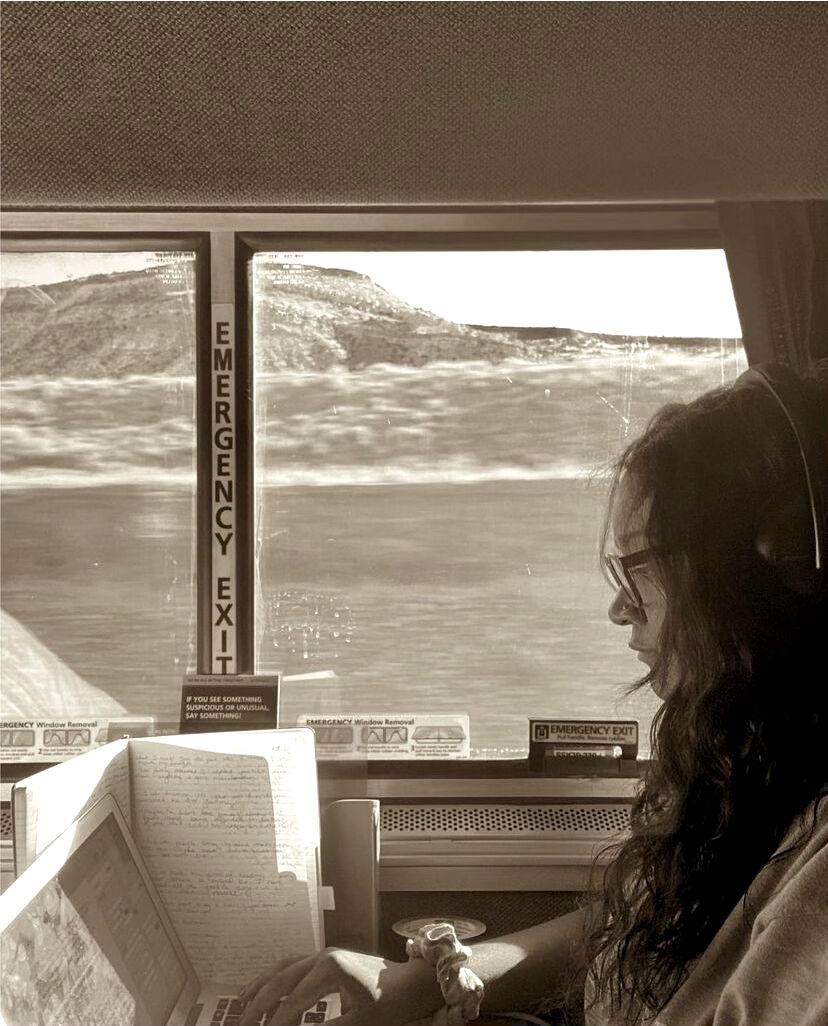
The author, authoring, while enroute.
In San Diego, I was too hot during the August heatwave to do anything but sit in the cabana at Town and Country and strategize potential story angles with my editor. The missed calls from my partner in Chicago told me it might be a love story, although I wasn’t sure of the ending.
My stay down south was brief, and sooner rather than later it was time to get back on the train. I walked from The Guild Hotel, where I was staying, to downtown’s Santa Fe train station. Back on the Pacific Surfliner heading straight to Santa Barbara, we traveled over bluffs and beach ridges. It felt like I was trusting the waves to carry me instead of track.
In Santa Barbara, I met a new friend, Magan Kunin, owner of Kunin Wines and the Valley Project. We sat outside drinking a grenache wine named after her daughter Phoebe, talking about how she ended up in Santa Barbara. Magan had lived in Chicago most of her life—I’d only been there a year, and already I was thinking of giving up—but her late husband Seth urged her to consider moving here and start a winery.
“Sensible people don’t move to Santa Barbara,” Magan told Seth at the time. It was the same thing my partner was telling me.
Back on the rails to San Luis Obispo, I brought smoked salmon and three bottles of wine Magan had sent with me to ease the rest of my journey. Amtrak’s complimentary rosé was a great perk, but the Valley Project’s rosé was infinitely better.
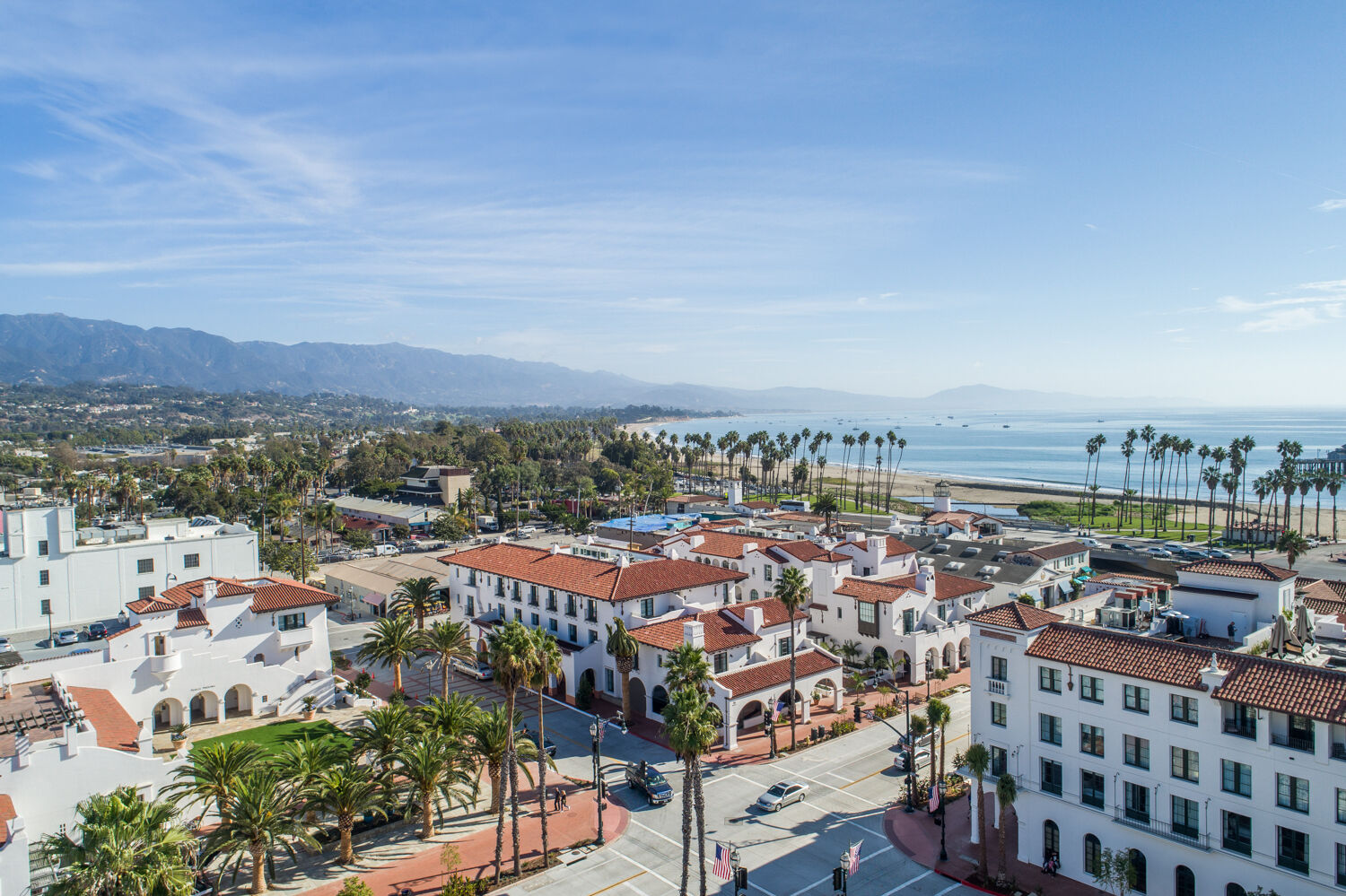
Santa Barbara is only a train ride away.
At Ebony SLO, an Ethiopian restaurant, owner Feben Teffera is one of the best-dressed and most chic women I’ve ever met in my life. Teffera and I sat outside on the patio and talked for more than an hour about how we both chafed under the expectations of womanhood.
To that point, I confessed to her that I was considering not going back to Chicago, that I was disappearing more into California by the day, torn between being single and rootless or making my own family with the man I loved. My avoidance couldn’t be helped, but neither could my desire for home.
I decided to wash off my ambivalence by taking a surf lesson in Pismo Beach, which felt right after days of staring at the waves from my perch on the train.
I fell off my board constantly, snot and saltwater pouring down my face. My instinct was to give up, but I was also possessed by a manic urge to prove I wasn’t a quitter. This would be a turning point in my life, I decided, the day I’d transmogrify into a person who finished things. A person who stayed. Then I fell again. The board slammed into my head, pushing me beneath the waves.
After washing the sand out of my hair, I saw a Washington Post article about an impending railway worker strike. The majority of the railways aren’t owned or operated by Amtrak but by companies like Norfolk Southern, Berkshire Hathaway subsidiary BNSF, CSX, and Union Pacific, where workers weren’t even able to get time off for doctors appointments.
Unreservedly, I supported the strikes. But since Amtrak is beholden to the railway companies, a long strike could keep me from traveling for some time. I felt relieved. If the trains stopped running, so could I.

Ethiopian eats at Ebony in San Luis Obispo.
Back on the train, I headed to San Francisco on the Coast Starlight, where the train car vanished into California’s golden hills instead of gliding along the ocean. Now in coach, where the bathrooms are dirtier, the wine isn’t free, and the passengers are more diverse in every way.
Trains serve people in a way that other modes of transportation don’t. Airfare is expensive. Cars and insurance are expensive. Busses, claustrophobic. Nothing covers distance as comfortably and economically as a train. Everyone deserves this, and those railway workers keep it all moving.
On the Coast Starlight, I met, as I often do on trains, a woman who was recently released from prison, heading home. Like many of the formerly incarcerated people, the prison held onto her ID, so a plane wasn’t possible. Her husband was still incarcerated, and she said she planned on taking the train to pick him up when he was eventually released.
In San Francisco, public transit took me to the Mission. I could hear preachers moaning, shouting, and humming in Spanish as they urged their congregants to accept the Lord. I came across the Senegalese dancehall restaurant Bissap Baobab. People filled the dance floor as I housed African tacos and mustardy chicken yassa with caramelized onions, fresh tamarind, and hibiscus juice. I could live here.
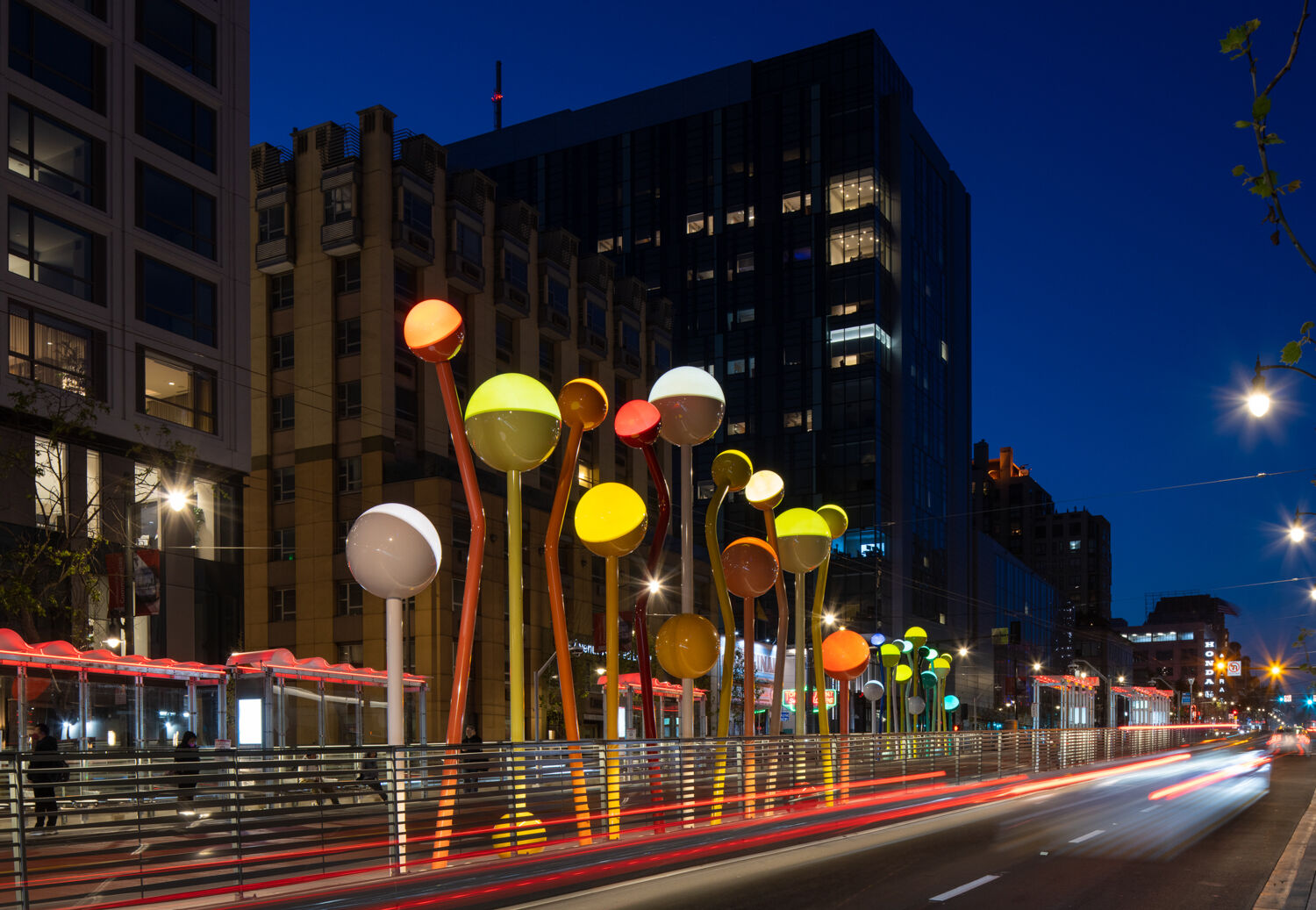
Public transit in San Francisco, where the Senegalese food at Bissap Baobab is worth a ride to The Mission neighborhood.
But my longing for home was becoming nearly untenable. My laundry was dirty, and I wanted to lie in my partner’s arms, cook lasagna together. This life of endless roaming, of packing and repacking, is rough. Then, I got an email that my train had been canceled in anticipation of the railway strikes. I was stuck in California. Feben, the restaurateur, reached out, telling me to enjoy my extended time. I didn’t know how extended it would be. More frighteningly, I didn’t know how extended I wanted it to be.
Amtrak wasn’t operating, so it was a nine-hour Greyhound back to Los Angeles through the agriculture areas near San Jose and parts of the Central Valley. I watched farm workers gather what was left of this year’s crops—which had to be harvested early due to the heat wave—alongside signs protesting California’s water crisis.
PARTNER CONTENT
The freight railroad companies and the workers’ unions came to a deal, averting a strike (and an economic crisis), at least for now. I could go home. My new train—Amtrak’s Texas Eagle—left at 10 p.m. I spent most of the day in my hotel room at the Conrad, watching the sun outside my window. Hours passed. I realized it was 9:30 p.m. I was going to miss my train. If I missed it, I could stay. But I didn’t want to; that had finally become clear.
With two minutes to spare, I made it on my train, laid down on the bed, and prayed to reach Chicago—and everyone waiting for me ther—as quickly as I could. Just 1,306 miles of overland travel and 63 hours with my travel companions to go.
